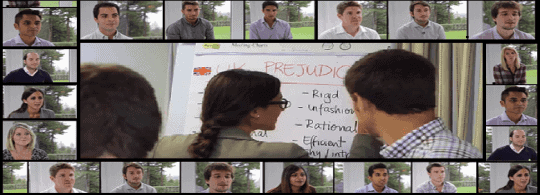
As a continuation of the article “The future starts with the letter S“, in which Professor Iñaki Ortega, who has a PhD in economics, shared his vision about Generation Y following the publication of his book “Millennials, inventa tu empleo”, Rafael Fernández, Head of Projects at Ferrovial Servicios’ Cities Centre of Competence, and Manual Martínez, Head of Open Innovation at Ferrovial, summarise Ferrovial’s contribution to the book: a chapter on how the company looks to harness Millennials’ potential as a way to generate value.
According to a recently-published study by The Boston Consulting Group, Millennials (people aged 18 to 34) account for $1.3 trillion in direct annual spending. That generation was born under open collaboration models, as part of the digital revolution that’s transforming all industries, including an ongoing commitment to open innovation models.
According to the report, Millennials interact with brands in a different way from the generations that preceded them: engagement is much more personal, more direct, through smartphones and social media; as a result, the impact and relationship they have with brands has accelerated and intensified considerably.
In view of this, Ferrovial is looking to channel that generation’s potential, both inside and outside of the company. Our objective is to increase value creation at all levels of the organisation. As part of this change, we should be keenly aware that many of our main stakeholders, including our clients, will be members of Generation Y very shortly.
Ferrovial views innovation as a strategic tool to respond to the global challenges faced by the infrastructure and services industries. Innovation not only improves productivity and competitiveness; it is also one of the main sources of value creation. Accordingly, we are implementing a series of initiatives to attract talent and channel the potential of Millennials, whose qualities are closely linked to entrepreneurship, creativity and new skills.
The external search for Millennials
The commercial relations paradigm has changed for good: public-private partnerships, the big innovation of recent years, are now joined by the phenomenon of entrepreneurship.
Entrepreneurs accelerate innovation processes due to their constant search for new solutions and models, and to their social and professional skills. In view of this, we want to highlight two initiatives launched by the company which bring together three fundamental players: government, entrepreneurs, and services companies.
Madrid Smart Lab
This a programme for entrepreneurs that has the support of governments and big enterprise. Launched jointly by Ferrovial Servicios and Madrid City Government, it aims to scale entrepreneurs’ capacity in the context of innovation in municipal services. Madrid Smart Lab also seeks to enable entrepreneurs to test out their solutions in an actual city: Madrid.
It promotes municipal innovation in a unique and effective way, by connecting the city government, the entrepreneur and the services company on an equal footing. We should be aware that Millennials have changed the language of the future, and both administrations and companies must make it a part of their day-to-day.
Cities Open Challenge by Ferrovial
This initiative aims to enable entrepreneurs to develop innovative technological solutions that help improve municipal services. By letting people come up with smarter formulae for living together in harmony, we enable the community to be more intelligent overall, which will lead to an improvement in our cities.
The programme, to be rolled out in five cities in Spain, aims to find ideas and solutions which encourage citizens to participate in improving the delivery of municipal services.
Internal search for Millennials
This generation’s philosophy has spilled over to other groups: many professionals and citizens are adopting Millennial ideas and advocating a more social and collaborative way of living. With this in mind, Ferrovial has designed an internal plan to promote a culture of innovation throughout the organisation. The objective is to make it easier to identify and implement innovative solutions using existing resources in line with the company’s strategy. This plan is based on a fundamental idea: innovation arises from ideas, and ideas come from people; therefore, it is essential to foster a culture of innovation.
Ferrovial Innovation Awards
Aware that innovation can come from anywhere, the company organised the Ferrovial Innovation Awards in 2012 and 2014. Under the term “Zuritanken” (a mix of “nzuri”, which means “good” in Swahili, and “tanken”, which is Swedish for “idea”), Ferrovial encourages its employees to propose solutions for four challenges, one in each business unit: Services, Airports, Toll Roads and Construction.
With this initiative, Ferrovial aims to recognise innovative ideas that can be implemented, with a focus on increasing process productivity and efficiency.
To conclude, we would like to quote Ferrovial Chairman Rafael del Pino: “At Ferrovial, we believe innovation is vital for taking on new projects and leading the transformation in infrastructure in the 21st century.”






There are no comments yet